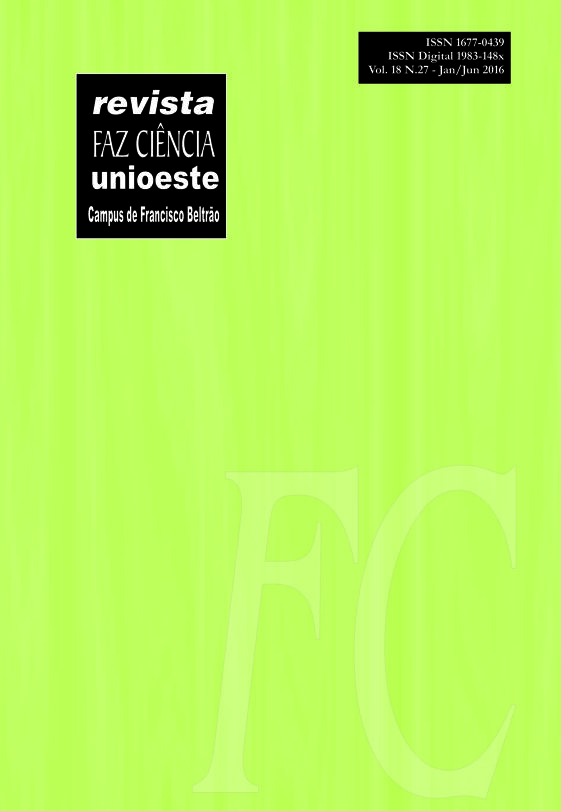VISIT TO AN AREA NON-FORMAL LEARNING IN SCIENCE EDUCATION: A CASE STUDY OF INDICATORS FROM COMPLEX THINKING
DOI:
https://doi.org/10.48075/rfc.v18i27.12338
Supporting Agencies
Bolsa CAPES
Keywords:
Ensino de ciências, Espaço não formal de aprendizagem, Pensamento complexo.Abstract
In this research we analyze the contribution that a visit to a non-formal learning space can provide for the construction of knowledge in science education in a group of students in the early years of elementary school. The goal was to understand how this visit may contribute to the construction of complex thinking elements from the fauna theme. The research approach was qualitative, with research methodology case study features. The procedures and instruments for data collection consisted of class daily record, questionnaires and making drawings. All data collected in the investigation were submitted to discursive textual analysis. We adopt indicators of complex thinking elements to determine to what extent could be affected to changing conceptions of the students on the subject studied before and after the visit. The results indicated that the visit to the non-formal space was crucial to the evolution of the conceptions of students with characteristics of indicators of elements of complex thinkingDownloads
Published
21-12-2016
How to Cite
OZELAME, D. M.; DA ROCHA FILHO, J. B. VISIT TO AN AREA NON-FORMAL LEARNING IN SCIENCE EDUCATION: A CASE STUDY OF INDICATORS FROM COMPLEX THINKING. Revista Faz Ciência, [S. l.], v. 18, n. 27, p. 93, 2016. DOI: 10.48075/rfc.v18i27.12338. Disponível em: https://saber.unioeste.br/index.php/fazciencia/article/view/12338. Acesso em: 6 jul. 2025.
Issue
Section
Artigos
License
Aviso de Direito Autoral Creative Commons
Política para Periódicos de Acesso Livre
Autores que publicam nesta revista concordam com os seguintes termos:
1. Autores mantém os direitos autorais e concedem à revista o direito de primeira publicação, com o trabalho simultaneamente licenciado sob a Licença Creative Commons Attribution que permite o compartilhamento do trabalho com reconhecimento da autoria e publicação inicial nesta revista.2. Autores têm autorização para assumir contratos adicionais separadamente, para distribuição não-exclusiva da versão do trabalho publicada nesta revista (ex.: publicar em repositório institucional ou como capítulo de livro), com reconhecimento de autoria e publicação inicial nesta revista.
3. Autores têm permissão e são estimulados a publicar e distribuir seu trabalho online (ex.: em repositórios institucionais ou na sua página pessoal) a qualquer ponto antes ou durante o processo editorial, já que isso pode gerar alterações produtivas, bem como aumentar o impacto e a citação do trabalho publicado (Veja O Efeito do Acesso Livre).
Licença Creative Commons
Esta obra está licenciada com uma Licença Creative Commons Atribuição-NãoComercial-CompartilhaIgual 4.0 Internacional, o que permite compartilhar, copiar, distribuir, exibir, reproduzir, a totalidade ou partes desde que não tenha objetivo comercial e sejam citados os autores e a fonte.


